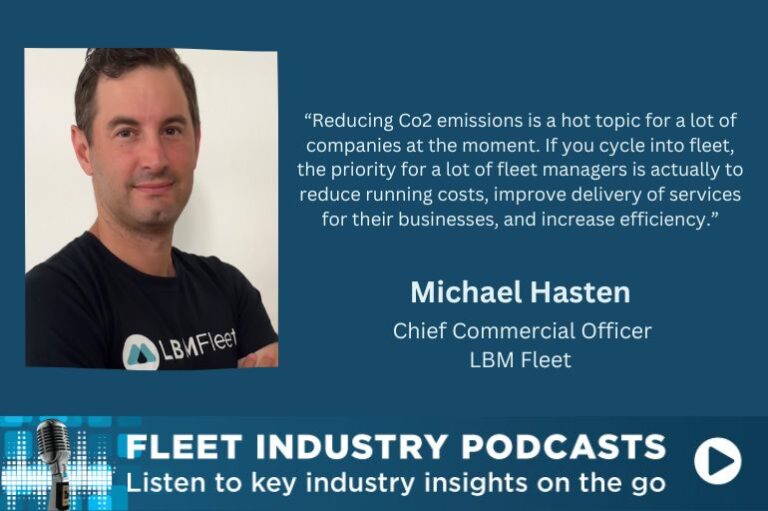To kick off 2023, Fleet News Group talk with Michael Hasten of LBM Fleet Solutions about one of our favourite topics — how the circular economy affects fleets.
“The circular economy has a multitude of impacts on fleet,” said Hasten, LBM’s chief commercial officer. “It’s really adding a constraint to the traditional take and make approach. It’s all about how do we actually reduce,reuse, recycle, to optimise and reduce waste. And the results obviously will be a more sustainable business environment.”
The circular economy is a guiding theme for the Fleet News Group podcasts. In 2022, we talked to Dickson Leow, general manager at Innovative Mechatronics, or the IM Group, about pioneering EV battery reuse and recycling in Australia, to Lina Goodman, CEO of Tyre Stewardship Australia, which is funding research and development of programs to find uses for end-of-life tyres, and to ANC’s CEO, Joe Sofra, who is building the largest electric van and truck fleet among Australia’s last-mile delivery specialists.
“Reducing Co2 emissions is a hot topic for a lot of companies at the moment,” said Hasten, adding, “If you cycle into fleet, the priority for a lot of fleet managers is actually to reduce running costs, improve delivery of services for their businesses, and increase efficiency.”
Hasten said when those priorities and needs are knitted together successfully, the result is a more sustainable outcome and one that is true to circular economy principles.
While Hasten emphasises reduce, reuse and recycling as key circular economy principles, there are others: repurpose, repair, reconsider, in recognition that there is not an endless supply of original resources. Another consideration for circular economy practices is to return goods to the distributor or manufacturer for recovery of the resources, or other uses.
“The best thing — if we’re talking in a circular economy — is actually how do we buy less vehicles? And the outcome of that is: one, how do you use them more effectively? Or, how do you hold them longer?” said Hasten.
Hasten also talked about the electric vehicles having less things that can go wrong, compared with traditional internal combustion engines, and how that gives rise to questions for fleet managers such as, “How can you potentially look at say replacing the battery after a number of years or number of kilometres and keeping that car longer? And then you can repurpose that battery, or you can recycle that battery.”
Hasten talks about how LBM, a name derived from the acronym of Log Book Me, works with fleets, using data to analyse what business vehicles are being used for, what services they are required to deliver on, and how to provide for them efficiently.
“It’s actually not about the asset and how far it drives or how frequently it drives. It’s about who, who’s driving the vehicle. Why? Why are they driving?” said Hasten.
The solutions can be surprising and can involve new ways of doing things, such as introducing pooled vehicles, and bringing business units together to share resources, and improving efficiency.
These are some of the topics we touch on in the first podcast of 2023 to illuminate the ongoing and compelling theme of the circular economy.
It’s a topic that is dynamic and relevant to fleet, which is responsible for valuable resources and assets.
“The more I hear about it, the more pertinent it’s going to be for a whole bunch of companies and the environment,” said Hasten.







